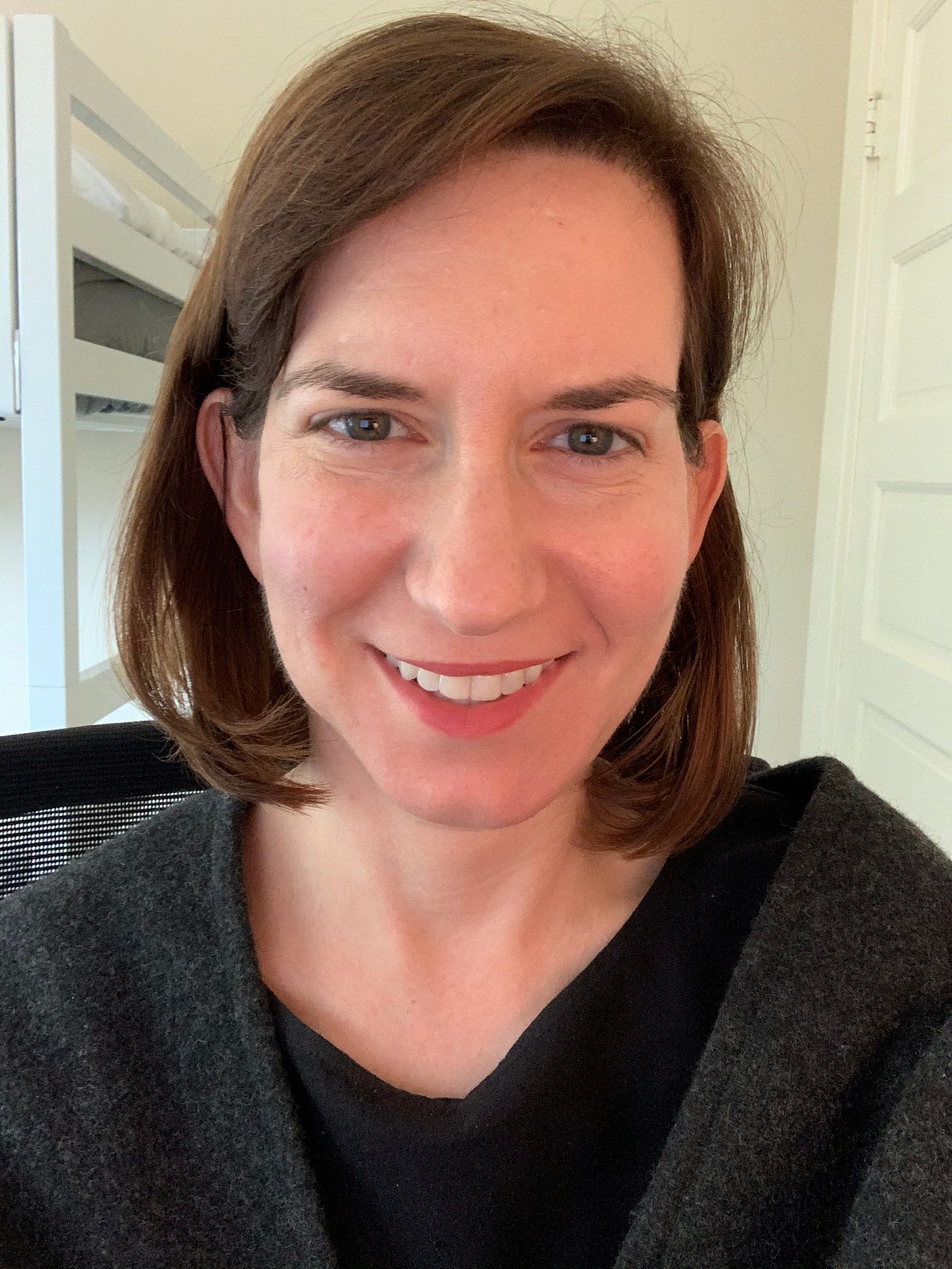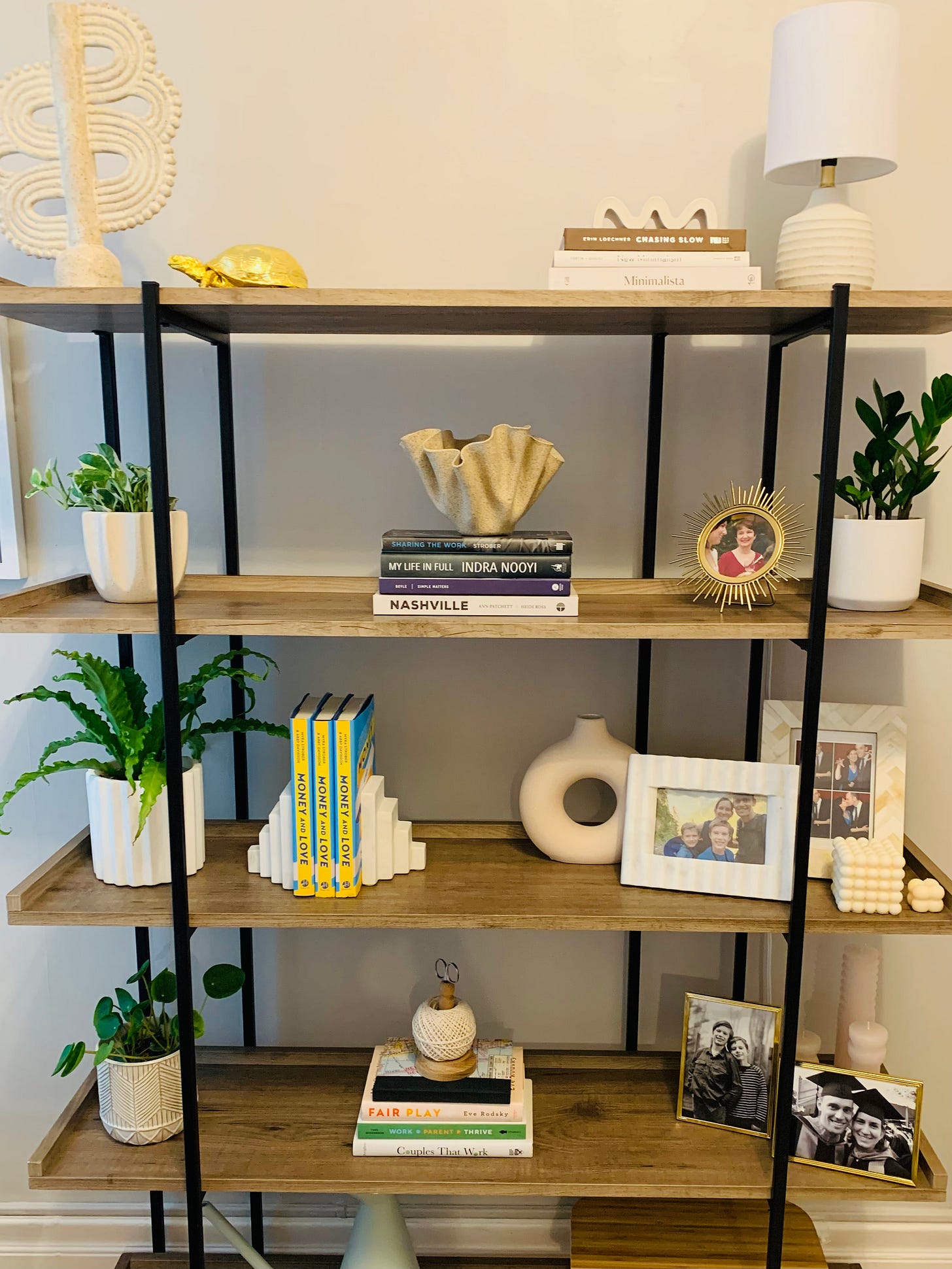Are You an Integrator or a Segmentor?
How knowing yourself better can help you do your best work
At the end of last week’s post, I mentioned that I rent a separate office space, and I received a number of questions about it. What led me to do that? How did I know it was time?
Many of us are still trying to figure out how and where we do our best work, even as we’ve navigated various WFH/RTO mandates over the last four years. I’m sharing my journey here in case it serves as a useful beacon for yours.
Integrators vs. segmentors
Harvard Business Review published an article in June 2020 that served as a lightbulb moment for me. The author, a Wharton professor and dean, describes two preferences when it comes to work and home life: integration and segmentation.
Integrators have no problem blurring boundaries between work and home; they are comfortable taking work calls in the evenings and showing up to events at their kids’ school in the middle of the work day. Segmentors, on the other hand, prefer to have more distinct boundaries between work and home life.
The article identifies time and space as the two relevant dimensions that integrators and segmentors must navigate. Whereas integrators don’t mind work and home life bumping up against each another in one or both dimensions (and may even enjoy it), segmentors wish to keep their work and home lives separate, often going so far as to maintain separate calendars and keychains for each domain.1
A segmentor forced to become an integrator
When I first read this article in June 2020, I identified a major reason for my unhappiness since the start of the pandemic2: I was a segmentor who had been forced to become an integrator overnight.
I have a strong space segmentation preference. For the first two decades of my career, I happily commuted to an office every day. I’d occasionally work from home if I wasn’t feeling well or needed to meet a repair person, but otherwise I enjoyed going somewhere else to work. After years of cubicles, I’d graduated to an office space with a door, a luxury I didn’t take lightly.
In mid-March 2020, like so many people in the US, I suddenly found myself working from home full-time. And unlike my WFH days pre-pandemic, my entire family was there — all the time — which included my husband (also suddenly working remotely) and our then-preschooler (age 4) and first grader (age 7). Needless to say, no one was doing their best work.3
When it became clear that this arrangement would last longer than a few weeks, Ross and I ordered desks and claimed separate workspaces. Mine was in our kids’ bedroom, which I chose because it had better light. In retrospect, my choice was a mistake.4
I appreciated that I once again had a door I could close, but my kids frequently interrupted me when they needed to get something in their room.
Being in my kids’ bedroom also meant that their bunkbed was on full display in my Zoom background. In my first one-on-one meeting with our company’s newly-appointed CEO, she asked if I had twins. For a second, I was confused. Then I realized: the bunkbed!
I wasn’t trying to hide the fact that I had kids (I had, after all, started the company’s employee resource group for parents). But the bunkbed wasn’t a topic I’d hoped to discuss in our first meeting.
Adjustments and experiments
Soon thereafter, I bought a wooden folding screen to hide the bunkbed. For more than two years, at the start of my day, I’d set it up behind me, and at the end of my day, I’d close it and store it in the closet. I grew to appreciate the ritual of it; folding the screen became a signal that the workday was over.
Our kids eventually went back to in-person school and the interruptions became less frequent. But I still didn’t love working out of my house. Walking to the kitchen to make myself lunch, I’d be reminded of all the chores that needed to be done, making it difficult to focus on work. My office downtown was being renovated and my whole team was still working remotely, so it didn’t make sense for me to return to my pre-pandemic workspace.
Some time later, I left my corporate job to launch my book and build a related business (at the time, I didn’t know what it would be, though I knew I wanted to do something entrepreneurial).
A few months later, a friend’s parents who lived in my neighborhood needed someone to water their plants while they were out of town. I spent a few weeks working from their place during the day, and it was a game-changer.
The experiment reminded me how much I enjoyed leaving my house to work, and I began brainstorming how I might do that longer-term. I searched for office space to rent nearby, and after a few false starts, I found my current space: a room in an nearby flat in my neighborhood, a seven-minute walk from my home.
It was absolutely a leap of faith to rent a space before I had reliable income (that’s a topic for another time). But I had saved my last few bonuses, making it feasible to invest in renting and decorating the space.
When an office is more than just an office
My goal was for my office to be an oasis — a sanctuary that made me feel peaceful and inspired, which wasn’t how I felt during the nearly-three years I worked out of my kids’ bedroom with their bunkbed behind me and LEGO bricks underfoot.
At the suggestion of a design-oriented friend, I sourced pieces from talented California-based female artists for my bookshelf as inspiration for this next chapter of my career. I bought plants from a female-owned garden business. I included books by female authors and entrepreneurs I admire (some of whom I’m fortunate to call friends).
I put pictures of my family on the shelves, including one of my late mother at my wedding. I wish I could share this journey with her; this is one small way she can be part of it.
An unexpected side benefit
Now that I’ve been working from my office space for over a year, I’ll share one additional unanticipated benefit of leaving the house to work: I get to reunite with my husband at the end of the day.
I was reminded of the importance of this when I read the entry on Rosalyn Carter in The New York Times’ “The Lives They Lived” section. In it, Michael Paterniti shares a moving tribute to Rosalyn and Jimmy Carter’s partnership, including this description of their lives in their final act:
They still argue and bicker. A book they try to write together nearly ends their marriage. But by the end of each day, they’ve reconciled. She does tai chi while he reads. They tell people that some space — everyone sets their own distance — can do wonders for a marriage.5
Myra once told me that when her friend’s husband retired, she cautioned him that unless they were traveling, he shouldn’t expect to see her during the day. “I took you for better or for worse,” she said, “but not for lunch.” Wise woman.
What do you need in order to do your best work? Have you made any adjustments to where and how you work that have been game-changers? I’d love to hear about them in the comments.
Abby’s Latest
Two of the pieces on my bookshelf are sourced from Ink + Porcelain, a design and curation platform focused on objects designed by women. I first learned about the brand from Shira Gill, who profiled its founder, Cindy Ngo.
I’m inspired by Cindy’s career pivot from nursing to design and appreciate her efforts to source affordable, elevated pieces from female artists and designers.
I have the wavy tray and the ruffle bowl, but you can’t go wrong with any of these pieces. Ink + Porcelain is offering complimentary shipping on U.S. orders (excluding Hawaii) through the end of January.
Deliberately yours,
Abby
P.S. - Today’s my birthday, and to celebrate, I’m offering 20% off paid annual subscriptions. Click the link below to redeem this offer, good today!
Aside from the obvious fact that we were, of course, in a global pandemic.
While it may have looked like we had it all figured out in this Washington Post article, I can assure you it was a shitshow.
Ross did offer several times to switch rooms with me (he was sharing a space with our exercise equipment), but I declined.






Happy Birthday!!! Hope it is the best day :) Btw, I took yours & Myra's book over to a friend's last weekend--she was in the midst of some big life decisions... and was amazing. Thank you for your very "pragmagic" gift to the world.